William Hemsworth's Blog, page 80
August 2, 2021
Ignatius of Antioch: What Can We Learn?
I recently had the opportunity to sit down with Evangelist and radio show host Joe McClane. We discussed one of out favorite saints, St Ignatius of Antioch. There is so much that Christians today can learn from him and they would be wise to do so.
Ignatius of AntiochSaint Ignatius of Antioch was a disciple of St. John, who himself was a disciple of Jesus. He was the bishop of Antioch, and Antioch is where followers of Jesus were first called Christians. In 110 A.D. he was captured and was taken to Rome for his eventual martyrdom.
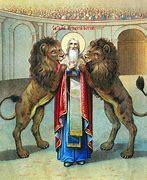
On the way to Rome he wrote seven letters to churches that give us a glimpse into church life and doctrine. Early in we see the Eucharist as the body and blood of Christ, the role of the bishop, and even the primacy of Rome
Listen to the interview I did with Joe McClane to discover what we can learn from the life and teaching of this great saint.
Interview about St. Ignatius of AntiochAbout Joe McClaneJoe is the program director of the Guadalupe Radio Network, and the host of “Catholic Drive Time,” a morning drive-time talk radio show. He authored the book “Muscle Memory: Beating The Porn Temptation,” as well as the first chapter of “Delivered,” published by Catholic Answers. Joe has also produced hundreds of hours of evangelization, apologetics and inspirational written and audio/video content.
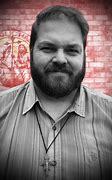
Visit Joe’s website: http://chirhoimpactmedia.com/
Check out all the great content at Guadalupe Radio Network: www.GRNonline.com
Check out my Joe’s radio program “Catholic Drive Time”: https://www.grnonline.com/en/cdt
The post Ignatius of Antioch: What Can We Learn? appeared first on William Hemsworth.
July 28, 2021
Conversion From Islam To Catholicism
Dustin Quick recently joined me on a live discussion to discuss his great mission that he is doing through his podcast “Holy Smokes: Cigars, Catholicism, and Conversation”. He is doing great work and I highly recommend you subscribe to his channel. He has an incredible conversion story that took a route through Calvinism and Islam.
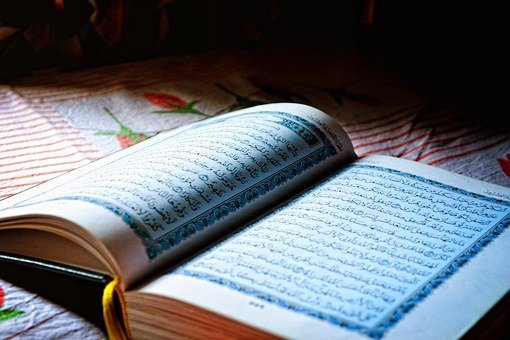 Islam To Catholicism
Islam To CatholicismSubscribe to https://www.youtube.com/user/ETruth1. He also has an incredible story of conversion and reversion to the Catholic faith. He was baptized as a Catholic but did not practice the faith. He went into Protestantism, then Islam, and is now home in the Catholic church. It is an amazing story that you need to hear.
The Interview With Dustin QuickThe post Conversion From Islam To Catholicism appeared first on William Hemsworth.
July 26, 2021
Holy Spirit And The Healing Power Of Prayer
Dr. Scott Forrer recently joined me discuss how the Holy Spirit works to heal. We discuss the power of the cross, how to die to your self, and how the Holy Spirit can heal memories through prayer. Dr. Forrer is a board certified Neurologist who calls upon his experience as a physician to show how healing prayer is effective. Check out his website at www.christconnections.me
Holy Spirit And HealingDr. Forrer draws on his 30 years of medical experience in Neurology to discuss how memories affect our bodies. He discusses how the Holy Spirit, through healing prayer, can heal those memories and turn them into instruments through which God can be gloried.
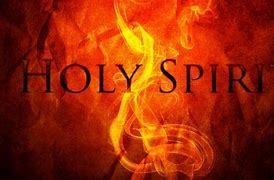 About Dr. Scott Forrer
About Dr. Scott ForrerAbout Dr. Scott Forrer: Dr. Scott Forrer attended medical school at Michigan State University and specialized in neurology at the University of Arizona. For over 30 years, Dr Forrer has been certified in both neurology and psychiatry and continues to manage an active practice. Dr. Forrer’s background is inclusive to comprehensive studies of neurosciences, with a focus upon neuronal systems of consciousness, the quantum physics model of consciousness, awareness, infinite intelligence, contemplative prayer, and meditation.
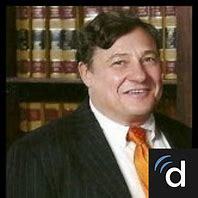 Dr. Scott Forrer
Dr. Scott ForrerPursuing a vocation as a medical professional, Dr. Forrer has embraced his practice in medicine with the conformance of his Catholic faith. He has been active with healing prayer groups and Eucharistic adoration for several decades. As a Catholic, he acknowledges God the Father, Son, and the Holy Spirit as the true healer. He believes that science supports the case that the healing of the brain, mind, and emotions are reliant upon prayer, particularly healing prayer.
The Interview About the Holy SpiritThe post Holy Spirit And The Healing Power Of Prayer appeared first on William Hemsworth.
July 24, 2021
What Is Critical Race Theory?
Critical race theory has been is the news quite a bit over the past year. Many have discussed it, but there are also many who are confused as to what it is. I recently sat down and had a discussion with two men and discussed critical race theory. Dr. Sam Rocha and theologian David L. Gray were very gracious with their time and I had great conversations with both. I posted the interviews on the Youtube channel and the podcast yesterday. For sake of brevity I will post the Youtube conversations below.
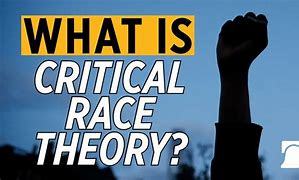 Sam Rocha On Critical Race Theory
Sam Rocha On Critical Race TheoryIn 2014, Rocha was appointed Assistant Professor of Philosophy of Education at the University of British Columbia, in Vancouver, Canada. He has also been a Member of the Common Room at Green College and Pastoral Philosopher-in-Residence at St. Mark’s College while at UBC. In 2014, he published the second edition of A Primer for Philosophy and Education with Cascade Books; in 2015 it won the American Educational Studies Association Critics Choice Book Award. In 2014, he released Late to Love, an Augustinian soul album, with Wiseblood Records.
In 2015 his book Folk Phenomenology: Education, Study, and the Human Person was published by Pickwick Publications and his essay, “A Tales of Three Cubicles,” won the Outstanding Contribution Award from Visual Arts Research. In 2016, he released Fear and Loving, a soundscape companion album to Folk Phenomenology. In 2017, Rocha published Tell Them Something Beautiful: Essays and Ephemera with Cascade Books and released a single, “A Todo Var.” Rocha was promoted to Associate Professor and awarded the Killam Teaching Prize at UBC in 2019.
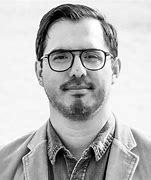 Sam Rocha
Sam RochaAt the end of 2019, he released his third full-length album, Anamnesis, and in 2020 he released a single, “The Freedom of Dialectic,” inspired by the life and thought of Maxine Greene. His newest book, The Syllabus as Curriculum: A Reconceptualist Approach, was published in 2020 and received the 2020 Outstanding Book Award from AERA: Division B, Curriculum Studies.
He has served as the president of the Society for the Philosophical Study of Education from 2012 to 2014, editor of the Patheos Catholic channel from 2015 to 2017, Communications Director of the Philosophy of Education Society from 2016 to 2020, book review editor for Studies in Philosophy and Education from 2013 to 2018, and a member of the Theory and History of Education International Research Group since 2015. He is on several editorial boards of academic journals and on the advisory board of Curriculum Studies in Canada. Rocha has also published widely in popular Catholic media including First Things, Commonweal, America, Our Sunday Visitor, The Catholic Herald, and Church Life Journal.
Dr. Rocha says that critical race theory is compatible with Catholicism.
What Is The View Of David L. GrayBorn in 1972, David L. Gray is an American Catholic Theologian and Historian, and the President and Publisher of Saint Dominic’s Media. He holds a Bachelor of Science in Business Administration from Central State University (Ohio) and a Masters of Arts in Catholic Theology from Ohio Dominican University. His published work, ‘Inside Prince Hall (Freemasonry)’ predates his conversion to Catholicism. He currently resides in the Greater Saint Louis area with his wife Felicia. They are active in the Queen of Peace Catholic community on Scott Air Force Base. David is an On-Air Radio Personality for the Guadalupe Radio Network ‘The David L. Gray Show: Voicing Truth and Reason‘, which airs every Wednesday on the global GRN at 4pm CST.
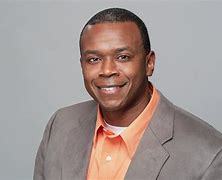 David L. Gray
David L. GrayDavid says that CRT is not compatible with Catholicism.
The post What Is Critical Race Theory? appeared first on William Hemsworth.
July 23, 2021
Hearts Burning Within Us: A Review
If you are familiar with my writing then you know how much I enjoy a good book. I have collected quite the library that ranging from scholarly theological works to daily devotionals. However Hearts Burning Within Us is unique as there is nothing like it that I have read. It is an important book for our time that answers questions that real college students have about the faith.
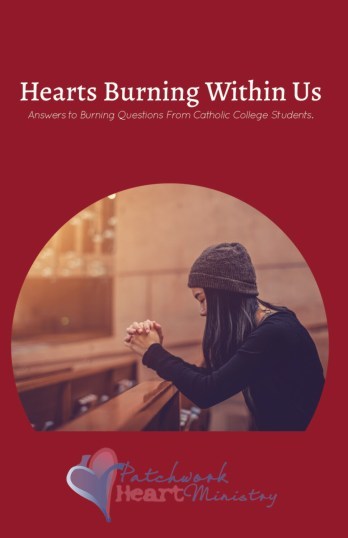 Hearts Burning Within UsThe Hearts Burning Within Us Concept
Hearts Burning Within UsThe Hearts Burning Within Us ConceptBill Snyder, the founder of Patchwork Heart Ministry and one of the authors, thought of the concept of a question and answer book some time ago. He wrote the intro and as things picked up with his ministry it was put on the shelf for a later time.
in 2020 the COVID-19 pandemic hit and it presented some never before seen challenges in our society. Bill decided it was time to get this book out. He teamed up with three other authors Anne DeSantis, Magdalene Riggins, and Jennifer
Southerton.
The four authors regularly met with five real college students via Zoom to have real conversations about questions that these college students had and would hear around campus.
Real Questions And Real AnswersThe questions are real, relevant, the answers real, and not superficial. They are answered with clarity and in a way easily understood. Some of the questions asked and answered include questions about scripture interpretation, the problem of evil, LGBTQ issues, underage drinking, and hypocrisy in the church.
As I have said, the questions are real and the authors do a great job in charitably answering these questions without watering down or compromising church teaching. Though the questions are from college students, these are also questions that those in high school have as well.
Is Hearts Burning Within Us Recommended?The book is broken down into 42 short chapters that answer 42 unique questions. Coming in at 109 pages it is a quick read for the college student in your life. It is also a good refresher for anyone who is serious about answering questions about how the faith interacts with the popular issues of the day.
I highly recommend this book for your catholic student and as a refresher for anyone serious about learning the faith.
You can purchase the book here.
[Note: This book was provided free of charge by the authors in exchange for an honest review.]
The post Hearts Burning Within Us: A Review appeared first on William Hemsworth.
July 22, 2021
The Demand For A Sign
Demand For A SignThen some of the scribes and Pharisees said to him, “Teacher, we wish to see a sign from you.” 39 But he answered them, “An evil and adulterous generation asks for a sign, but no sign will be given to it except the sign of the prophet Jonah. 40 For just as Jonah was three days and three nights in the belly of the sea monster, so for three days and three nights the Son of Man will be in the heart of the earth. 41 The people of Nineveh will rise up at the judgment with this generation and condemn it, because they repented at the proclamation of Jonah, and see, something greater than Jonah is here! 42 The queen of the South will rise up at the judgment with this generation and condemn it, because she came from the ends of the earth to listen to the wisdom of Solomon, and see, something greater than Solomon is here!-Matthew 12:38-42 NRSV
The Gospel passage above gives us insight into the minds of the Pharisees. A lot has happened in the first twelve chapters of Matthew. Jesus has healed people, he gives the beatitudes, and he performed many other miracles. Yet the Pharisees demand proof of his identity.
Not much has really changed. Many today still ask for the same sign even though they proclaim belief. In response to the Pharisees, Jesus gives a very simple and yet profound answer.
Jesus and JonahJesus tells the Pharisees that the only sign he will give is the sign of Jonah. We all heard the story. God wanted the prophet Jonah to go to Nineveh with a message of God to repent. Jonah refused and was swallowed by a whale for three days.
Contrary to what some of the stories we heard in our youth, Jonah was not living inside the whale. No he was dead and three days later he was spit out on the beach revived.
This event from the life of Jonah prefigures the resurrection of Jesus. Here Jesus is telling the Pharisees that he will give them a sign. He will resurrect after being in the belly of the earth for three days. This event was attested to throughout history.
St. Paul in 1 Corinthians challenges those who don’t believe it to go and talk with the people who saw. The disciples died for what they saw and Christianity spread throughout the world like wildfire. It spread even though there was, and is still, much persecution.
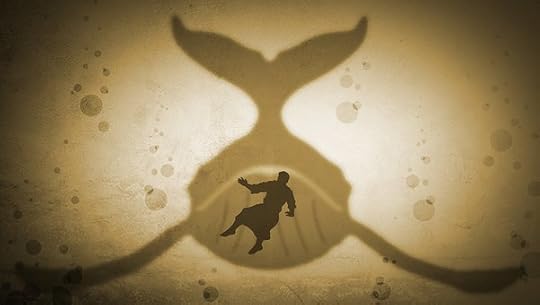 Application
ApplicationSometimes it is hard to remain positive and vibrant in our faith. Trust me I know. Especially in the current circumstances that we are living in. However the same Christ that died on the cross and rose from the grave is the same Jesus we profess today. Jesus gave the ultimate sign of who he is on that first Easter morning. May we remember this awesome event everyday. Take solace in the promise of Jesus to never leave us nor forsake us.
Saint Quotes“To love God is something greater than to know Him.” ~ Thomas Aquinas
“It is not hard to obey when we love the one whom we obey.” ~ Ignatius of Loyola
“Christ has made my soul beautiful with the jewels of grace and virtue. I belong to Him Whom the Angels serve.” ~ Agnes of Rome
The post The Demand For A Sign appeared first on William Hemsworth.
July 20, 2021
Who Is Qohelet In Ecclesiastes?
Qohelet is the Hebrew name for the book of Ecclesiastes. The more popular rendering of Ecclesiastes is the Greek rendering that was found in the Greek Old Testament Septuagint. Just who Qohelet is has been a matter of debate for several centuries. One clue to the identity of the writer is in Ecclesiastes 1:1 which states, “The words of the Preacher, the son of David, king in Jerusalem” (ESV-CE). The ESV renders Qohelet as “preacher”, but other translations list it as “teacher”. Both are correct interpretations of Qohelet. However, one other meaning of the word is “speaker in assembly”[1].
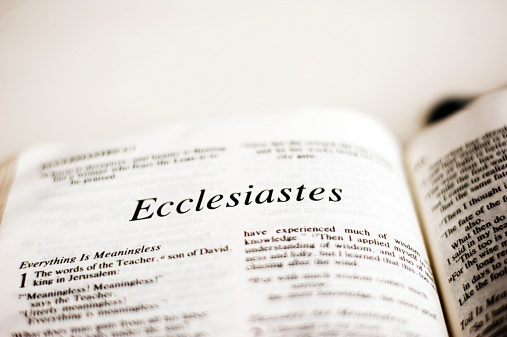 Was Solomon Qohelet?
Was Solomon Qohelet?We know from verse one, and the various interpretations of Qohelet, that this person is important. Is this person King Solomon as seeming to be indicated in verse one? Some say yes, and up until the time of Martin Luther this was the predominant view in Christendom[2]. There are a few reasons for this. For example, in 1 Kings chapter 8 we read about king Solomon gathering the people to dedicate the Temple.
The root word for Qohelet, qhl, is used in this situation. As previously stated, in 1:1 we read that the author is the king and the son of David. Later on in chapter one, in 1:16 to be exact, we are told of the author’s great wisdom and Solomon is known as the wisest of the wise. Still further in Qohelet 2:4-11 the author describes his great works. It is interesting to note that the oral tradition of the rabbis is even slit on Solomon being the author. For example, the Talmud one rabbi states that Hezekiah was responsible while others claimed it was Solomon[3].
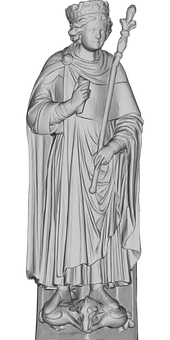 No Unanimous Opinion
No Unanimous OpinionMost scholars today look to Qohelet as emblematic of Solomon and perhaps writing in his spirit. Perhaps it is best to see the author as an editor who has taken on a quasi-literary persona of the great king[4]. There is much internal evidence to support that the author is not Solomon, and though no opinion on authorship is unanimous, the evidence lends itself to an author other than Solomon. As we looked internally for evidence of Solomonic authorship, we can do the same for the opposite.
For example, Ecclesiastes 1:12 states “I the Preacher have been king over Israel in Jerusalem” (ESV-CE). This past tense language of the great teacher is a big clue as Solomon ruled until the day he died[5]. Other Bible translations are more explicit is this past tense verbiage. For example The NRSV uses “when”, and the NIV uses “was” to denote the past tense nature.
Qohelet Remains UnknownThough the evidence for Solomon seems clear at the beginning, his influence seems to wain around chapter eight. There is some speculation as to why this is, but it was most likely to assure the recipients that Qohelet was not attacking wisdom, but asking questions about it. Ironically the issue of authorship also seeps into the dating of the book.
One reason scholars cite an author other than Solomon are the presence of Persian influence on some of the wording in Qohelet[6]. This indicates a setting that is uniquely postexilic and therefore precludes Solomon from being the author.
The Persian terms alluded to occur in 2:5 and 8:11 and are “parks” and “sentence” respectively. There is a possible use of aramiac as well as a synthesis of other Old Testament such as creation, Joseph, and dust returning to the Earth. This all lends itself to a later dating which would once again preclude Solomon as being the author[7].
In the end the author of Eccelsiastes, aka Qohelet, still remains a mystery.
[1]. Francis Brown, Samuel Rolles Driver, and Charles Augustus Briggs, Enhanced Brown-Driver-Briggs Hebrew and English Lexicon (Oxford: Clarendon Press, 1977), 875.
[2]. James E. Smith, The Wisdom Literature and Psalms, Old Testament Survey Series (Joplin, MO: College Press Pub., 1996), 692.
[3]. Ibid.
[4]. Robert Alter, The Hebrew Bible: A Translation with Commentary, vol. 3, the writings (New York: W.W. Norton & Company, 2019), 675.
[5]. Duane A. Garrett, Proverbs, Ecclesiastes, Song of Songs, vol. 14, The New American Commentary (Nashville: Broadman & Holman Publishers, 1993), 255.
[6]. J. Scott Duvall and J. Daniel Hays, The Baker Illustrated Bible Background Commentary (Grand Rapids: Baker Books, 2020), 475.
[7]. Graham S. Ogden and Lynell Zogbo, A Handbook on Ecclesiastes, UBS Handbook Series (New York: United Bible Societies, 1998), 6.
The post Who Is Qohelet In Ecclesiastes? appeared first on William Hemsworth.
July 19, 2021
Amos And A Heart Of Faith
The book of the prophet Amos was written in approximately the 8th century B.C. and is the oldest of what has come to be known as the minor prophets. There is not much that is known about the prophet from a personal standpoint, but we do know that he was a sheepherder from the town of Tekoa, and that he wrote “two years before the earthquake” (Amos 1:1). In Amos 7:14 Amos also describes himself as a grower of figs.
Who Was Amos?The mixture of the two seemingly opposite occupations in interesting. On one hand, being a shepherd is a humble occupation and implies that one is of simple means from a monetary perspective. However, to be a grower of figs gives the opposite impression.
In the ancient world figs were a delicacy, and to be a grower of them means that one had land on which to do it. This implies that Amos may have been wealthy, or at the very least had little issue with a steady income. Perhaps he had land to raise sheep, cattle, and grow figs.
This background is interesting considering some of the moral and social injustices that the book tells us. At this point the kingdom is divided, and though Amos was from the southern kingdom, he did his prophesying in the Northern Kingdom near Jerusalem.
The kingdom was experiencing unprecedented economic growth and expansion because they controlled the most popular trade routes, and Assyria and Egypt were experiencing their own issues that led to their decline as powers of the day.
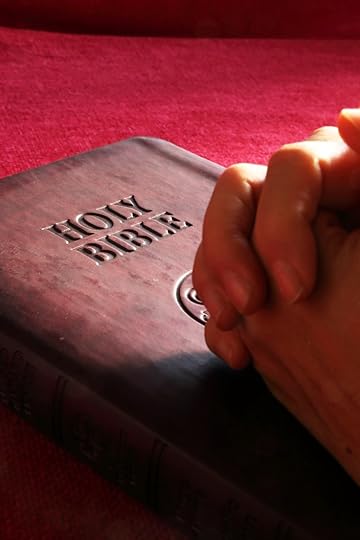 Prophecies Of The Prophet
Prophecies Of The ProphetAmos communicates a series of eight prophecies. The first seven are about the nations that surround Israel, but the eighth is directed toward Israel. Each prophecy is about the transgressions of the said nation, but when it comes to Israel the first seven transgressions listed correspond the eighth nation which is Israel itself.
In Amos Israel is named as breaking the seven covenants that God had given them. Amos is interesting in that the people appear to be very involved in religion. They are observing the rituals that are outlined in other parts of the Old Testament, but they are ignoring the social aspects of it.
While they experienced unprecedented peace and prosperity, the people have become complacent, prideful, and only looking out for themselves. Amos warns the people that though they have the outward appearance of holy living their hearts are from God.
They have become fascinated with a lifestyle of luxury, disenfranchised the downtrodden, and because of that the Lord will no longer accept their sacrifices (Amos 5:21-24). Their profession of faith was empty and void, and because they failed over and over to have a living faith, the emptiness will eventually bring destruction.
The people felt that they were fulfilling their obligation to God, but this was hardly the case. Their hearts of stone reflected lives that were not filled with faith, and thus not changed. As a result the sacrifices set forth from the law were an impediment because they were empty ritual.
Though the Israelites appeared to be pious, the conduct of their lives was anything but. Those with the riches abused their power and this would eventually bring the wrath of YAHWEH. Since they are the chosen people of God they are held to a higher standard, and as a result they are held to a higher standard of morality than the nations around them.
There Is HopeThe news is grim as the Lord says that he will destroy the nation, but not the whole nation. A remnant will rise up that will follow the ways of YAHWEH as well as follow the rituals prescribed. Amos sees that YAHWEH will not destroy his covenants but will be faithful to them.
Though the Israelites fell time and time again YAHWEH shows his love and mercy. He ensures people that His promise will be kept. Something better than what is currently present is promised. This is quite amazing when you consider the peace and economic prosperity that the nation was experiencing.
Going Through The MotionsIn dealing with a living faith as seen in Amos, the most common interpretation appears to be that Israel was going through the motions and their hearts were not changed. They began to think more of themselves that was they should. In short, they began to succumb to pride and though going through the motions was enough.
However, God wants every part of a man. Amos shows us that going through religious ritual without a change of heart will lead to ruin. In Amos 9:7 YAHWEH lays out a very important question, “Are you not like the Ethiopians to me, O people of Israel? says the Lord. Did I not bring Israel up from the land of Egypt, and the Philistines from Caphtor and the Arameans from Kir (NRSV)?”
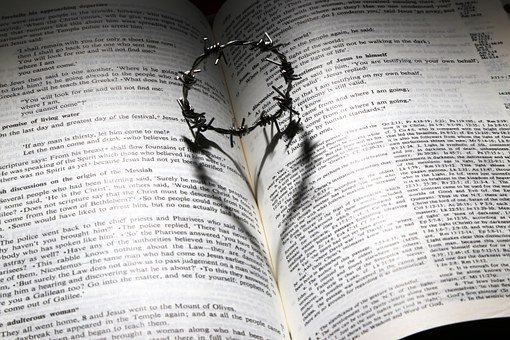 Amos And A Change Of Heart
Amos And A Change Of HeartIt is a call for a change of heart and humility. YAHWEH reminds the people that they were chosen from the beginnings of the world for a specific purpose.
How about us? Like the people Amos is describing, perhaps we are going through the motions. We go to Mass and say the right things. Perhaps we are wearing a spiritual mask and our hearts are not changed. Maybe we are letting matters of the world nullify our faith.
Has Jesus changed your heart of stone to a heart of flesh? If not we await the ruin of the people mentioned in Amos. Even Jesus said that all who call him Lord don’t know him. Don’t be one of them.
The post Amos And A Heart Of Faith appeared first on William Hemsworth.
July 16, 2021
The Son Of Man Is Lord Over The Sabbath
Jesus The Son Of Man“At that time Jesus went through the grainfields on the sabbath; his disciples were hungry, and they began to pluck heads of grain and to eat. 2 When the Pharisees saw it, they said to him, “Look, your disciples are doing what is not lawful to do on the sabbath.” 3 He said to them, “Have you not read what David did when he and his companions were hungry? 4 He entered the house of God and ate the bread of the Presence, which it was not lawful for him or his companions to eat, but only for the priests. 5 Or have you not read in the law that on the sabbath the priests in the temple break the sabbath and yet are guiltless? 6 I tell you, something greater than the temple is here. 7 But if you had known what this means, ‘I desire mercy and not sacrifice,’ you would not have condemned the guiltless. 8 For the Son of Man is lord of the sabbath.”-Matthew 12:1-8 NRSV
The Gospel reading from today’s Mass is very interesting. There are many layers to peel back, but I want to focus only on a couple. At the end of the passage we have a statement of authority by Jesus. He calls himself the Son of Man which is a title that appears in Daniel chapter 7. In that chapter the Son of Man is given dominion over every nation and, place, and people. Jesus used this term for himself several times in his public ministry.
As a man I am a son of a man, but that is different than being the Son of Man. It is a statement of authority, but also a statement of divinity. When saying that he is Lord of the Sabbath, our Lord is saying something profound. God rested on the Sabbath after the creation accounts in Genesis and commanded that the Sabbath remain holy. This was not lost on the Pharisees as they would later charge Jesus with blasphemy because calling oneself the Son of Man was equivalent to calling oneself God.
Mercy Not SacrificeIn today’s Gospel Jesus and the disciples are walking through a grainfield. They were hungry so they picked grain for nourishment. This was actually allowed under the law as long as one did not use a tool. However the Pharisees said they were breaking the law. Jesus then used the example of David and his men eating the showbread.
This whole situation brings up a very important distinction that we sometimes take for granted. The Pharisees were following the letter of the law, but not the spirit of the law. In attempting to follow the law they failed to see the needs and humanity in people. Have we been guilty of this? Maybe we saw someone as a means to an end, a tool to be used and later thrown out. Perhaps we ignored the pleas of the homeless man on the corner when we could easily spare a few dollars to help. Have we been so busy sacrificing that we have not shown mercy? There is nothing wrong with sacrifice, but in today’s Gospel our Lord tells us that we must be merciful.
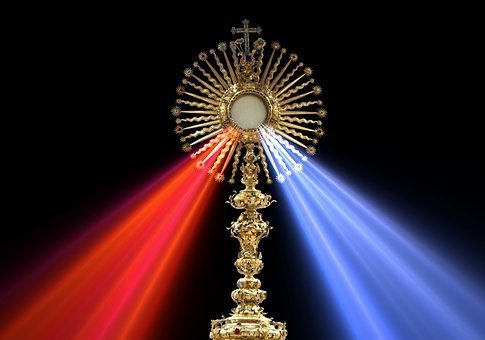 Divine Mercy and Eucharist courtesy of PixabaySaint Quotes
Divine Mercy and Eucharist courtesy of PixabaySaint QuotesExtend your mercy towards others, so that there can be no one in need whom you meet without helping. For what hope is there for us if God should withdraw His Mercy from us?
–Saint Vincent de Paul
Let our judgment of souls cease, for God’s mercy upon them is extraordinary.
–St Faustina
True charity consists in doing good to those who do us evil, and in thus winning them over.- St. Alphonsus Liguori
The post The Son Of Man Is Lord Over The Sabbath appeared first on William Hemsworth.
July 14, 2021
Differences Between Eastern Orthodoxy And Catholicism
Apologist Erick Ybarra joins recently joined me to discuss an interesting topic. On this program Erick discusses the differences between Catholicism and Eastern Orthodoxy. He discusses key issues of disagreement between the papacy and the filioque. We even discuss the chances of unity within our lifetime. Erick also gives us a peak into an incredible project he is working on in regards to the papacy.
Eastern Orthodoxy & CatholicismEastern Orthodoxy and Catholicism share many similarities. Both have seven sacraments, and the Catholic church teaches that the sacraments are valid. The Church states, “These [Eastern] Churches, although separated from us, possess true sacraments, above all by apostolic succession, the priesthood and the Eucharist, whereby they are linked with us in closest intimacy (Unitatis Redintegratio, 15)”.
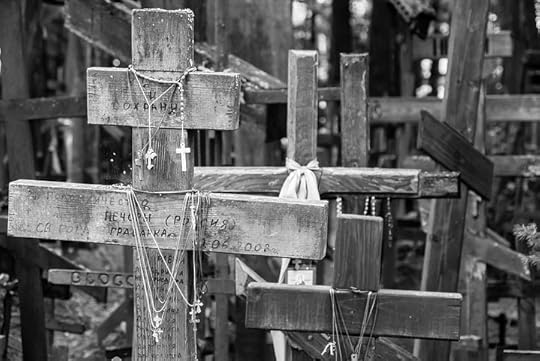
The Code of Canon law also states, “The Christian faithful for whom it is physically or morally impossible to approach a Catholic minister are permitted to receive the sacraments of penance, Eucharist, and anointing of the sick from non-Catholic ministers in whose Churches these sacraments are valid (Code of Canon Law 844)“
Both churches view each other as having valid apostolic succession. In the interview Erick also discusses if unity is a possibility.
About Erick YbarraErick is an amazing Catholic apologist who has done extensive research on the papacy and issues between the Eastern and Western Churches. He has an amazing website, www.erickybarra.org, where he dives deep into the nuances to give us all a better understanding. He is also a cohost of the Reason and Theology Youtube channel.
The InterviewThe post Differences Between Eastern Orthodoxy And Catholicism appeared first on William Hemsworth.
William Hemsworth's Blog
- William Hemsworth's profile
- 7 followers



